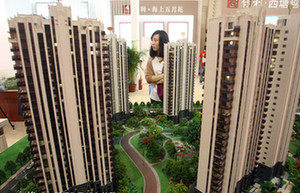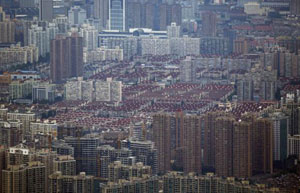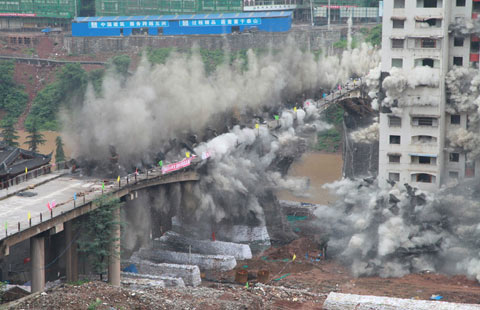Home purchase curbs being eased in more cities
By Hu Yuanyuan in Beijing and Liu Ce in Shenyang (China Daily) Updated: 2014-06-12 06:54Though home purchase restrictions are expected to be eased in more Chinese provinces, it will have a limited impact on propping up the sagging real estate sector, industry experts said on Wednesday.
Shenyang, the capital of Northeast China's Liaoning province, on Tuesday relaxed home purchase restrictions to boost property sales. This, according to experts, is part of the steps being taken by local governments to combat the property market correction and slower economic growth in China.
Li Ke, a manager of a real estate brokerage company in Shenyang, said the restrictions have been relaxed, but not abolished completely.
In the past, each family could buy two apartments within the second ring road area of the city. Now, each family can buy four. But banks will not provide any loans, and home buyers have to make a one-off payment, said Li.
Shenyang Housing Administration Bureau officials were not available for comment on the issue when contacted by China Daily on Wednesday.
It is not surprising that Shenyang has relaxed home purchase restrictions. Other cities that have a big supply of land and apartments may follow suit, said Sang Yufeng, an analyst with real estate agency Century 21.
Feng Jun, chief economist of the Ministry of Housing and Urban-Rural Development, told a news conference on June 4 that the overall policy is to encourage reasonable demand, curb investment purchases and allow local governments to use their own judgment. His remarks were widely seen as an indication that local governments would be allowed to adjust real estate policies according to their needs.
However, the effect of canceling home purchase restrictions may be limited due to the market-driven correction, Sang said.
According to Li, though several prospective buyers have been making inquiries, the actual growth in numbers is still not that significant. Most of the buyers have a wait-and-see attitude, said Li. I don't think real estate prices will rebound in the short term. The relaxation will help influence investment-oriented home purchases.
Although experts say that housing prices in Shenyang are healthy, it is still out of reach for most buyers. The policy moves will spur price increases, said Chen Weiming, an investor who is planning to purchase an apartment in Shenyang.
Industry experts said that the planned policy moves are an indication of the strong influence that the real estate sector has on the overall economy.
Chinese banks' exposures to the property sector, while not excessive by international standards, are still substantial and a principle source of risk in an environment of tightening liquidity, said a recent report published by global ratings agency Fitch Ratings.
Property development and mortgages reportedly account for over 20 percent of the loans of the banks covered by Fitch.
But total exposure could be higher, considering the risk of mis-classification of loans and exposure that may reside off-balance sheet, said Jonathan Cornish, managing director of Fitch's Financial Institutions.
A collapse in prices is not a core scenario, while the scale of exposure amid a slowdown is a significant macro risk, Cornish said.
 |
 |
| Local govts limit discounts on property prices | China Vanke says property sector's 'golden era' over |
- Dutch dairy companies eyeing growth in China
- China, Italy map out three-year cooperation plan
- Top 10 industries with most generous private employers
- Nanjing 3D street painting sets world record
- Xunlei to restart its IPO process in US
- China to expand Yangtze transport capacity
- China, US ink deals on energy efficiency
- Alibaba takes giant strides

















